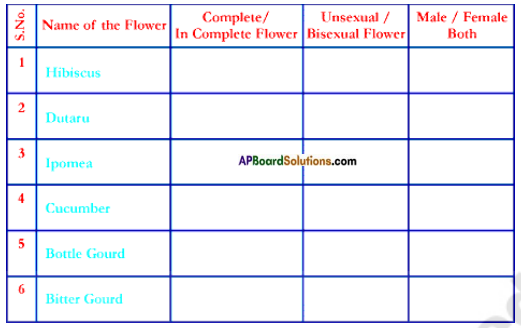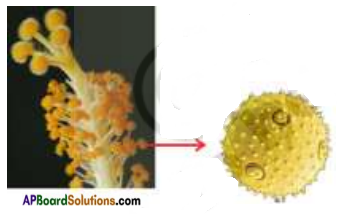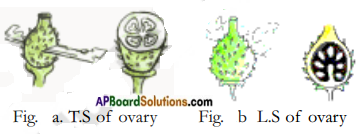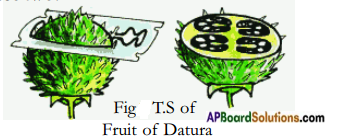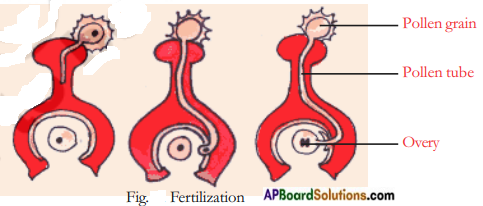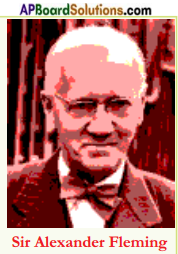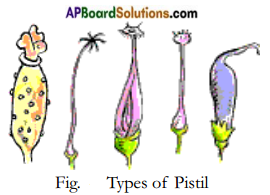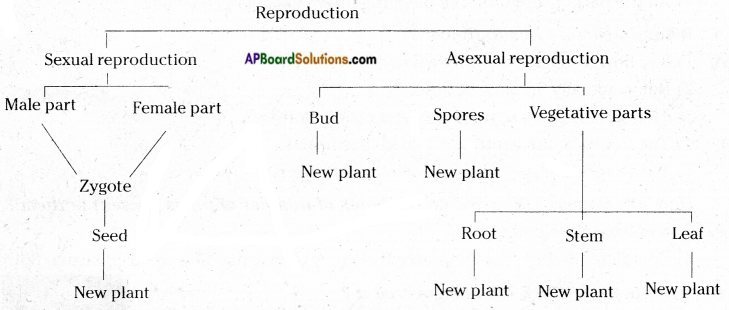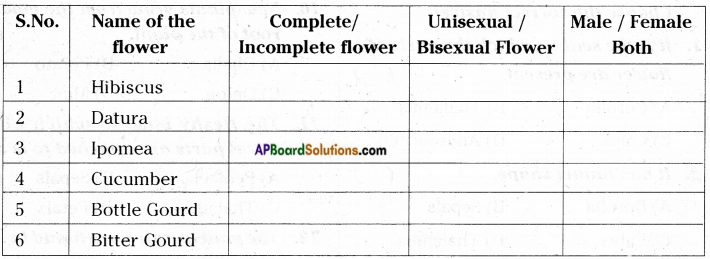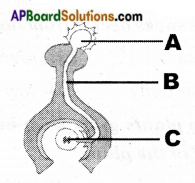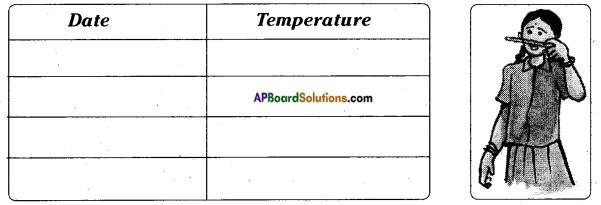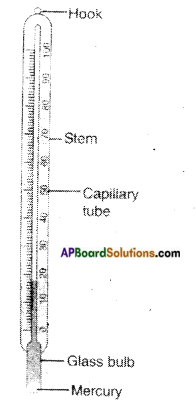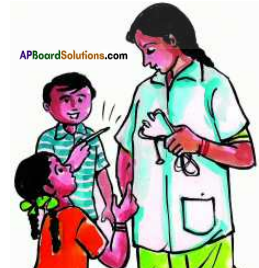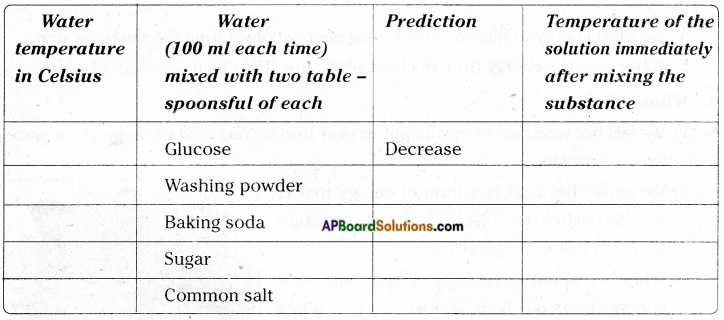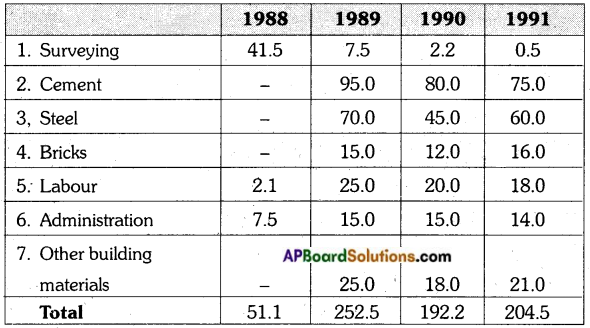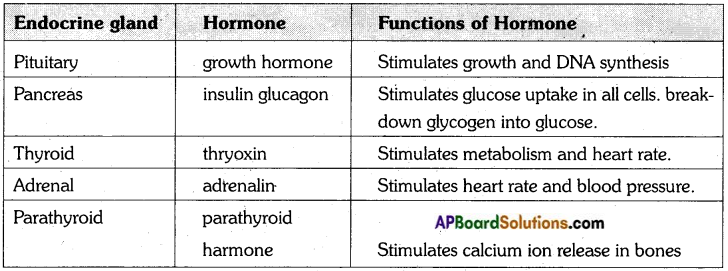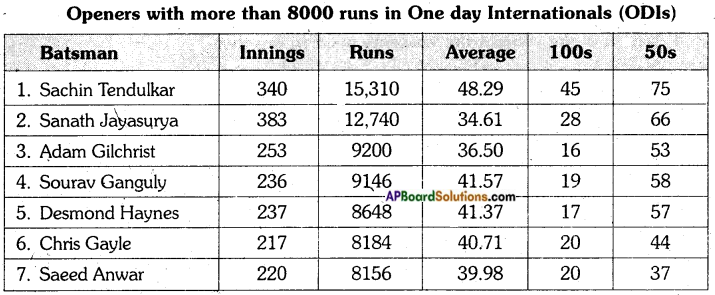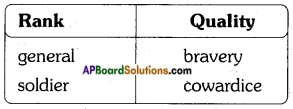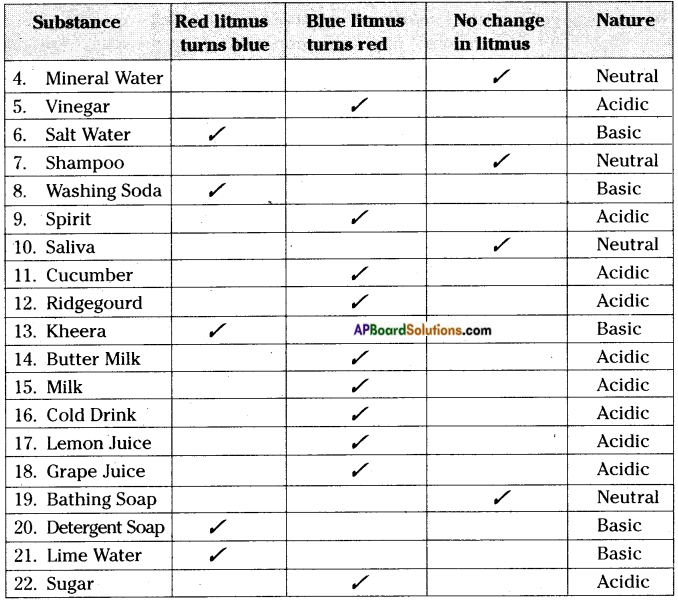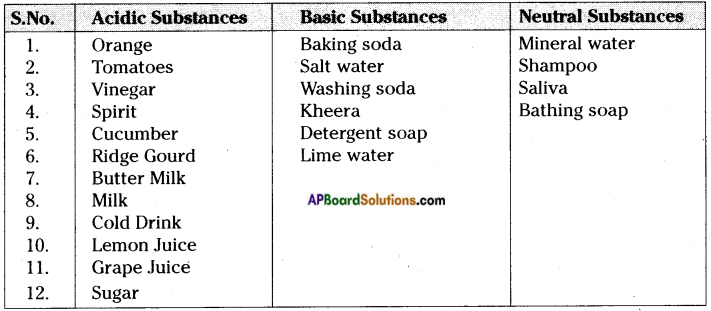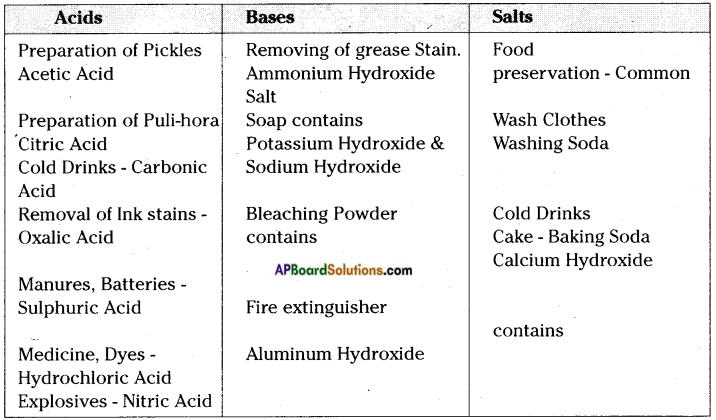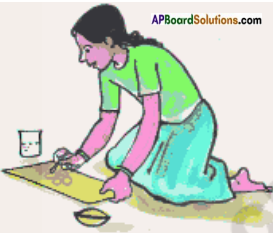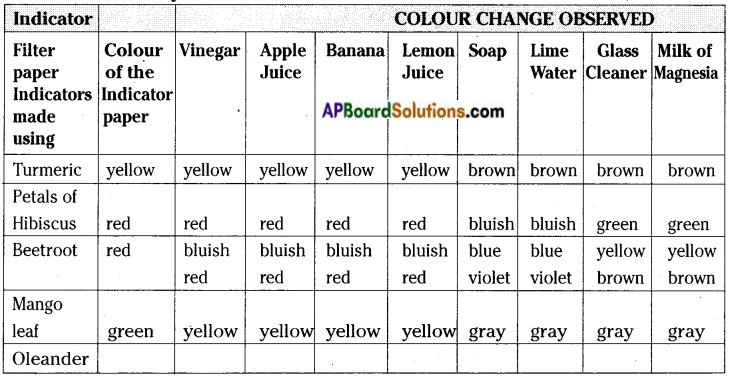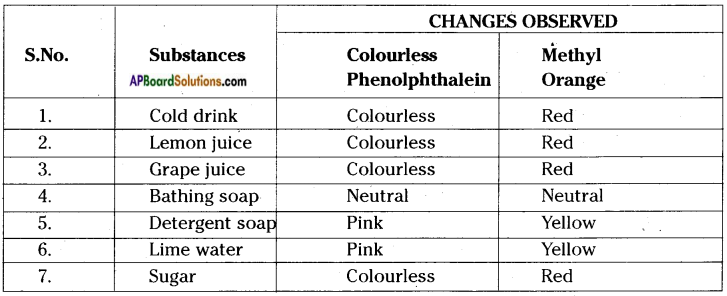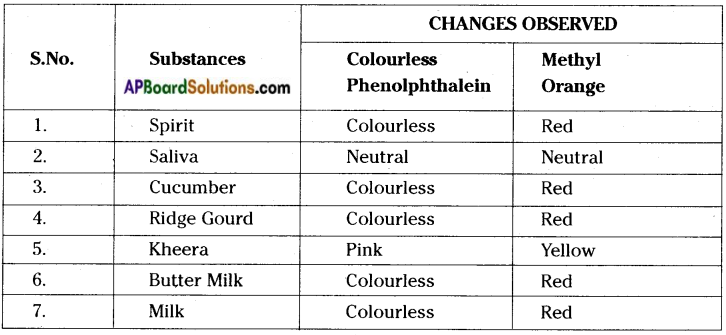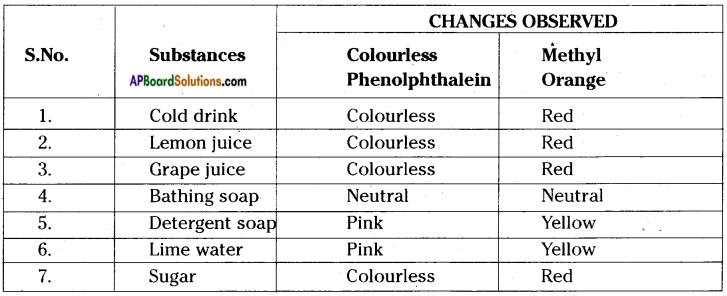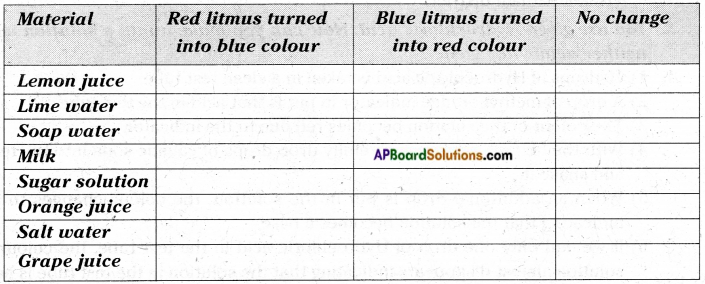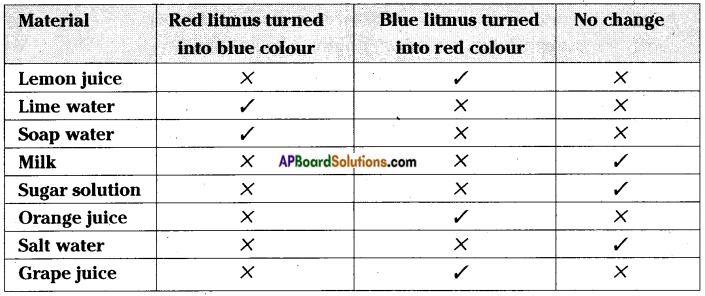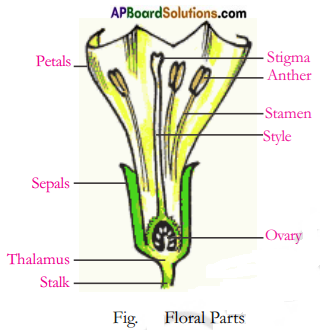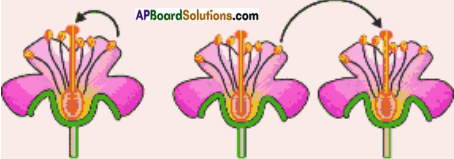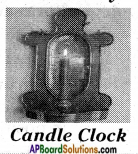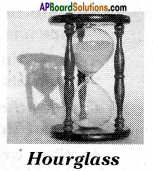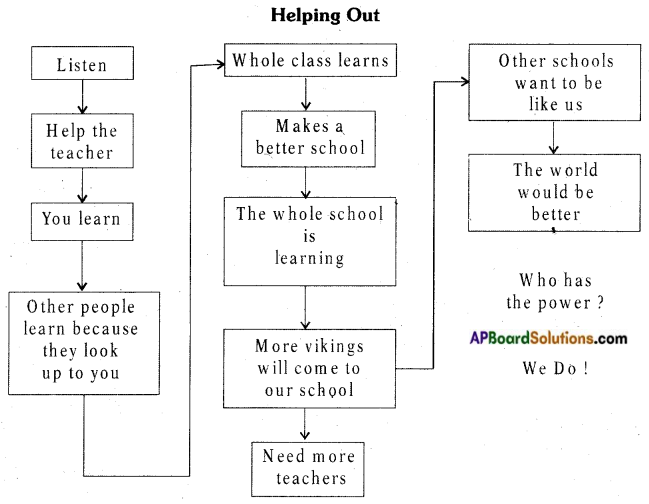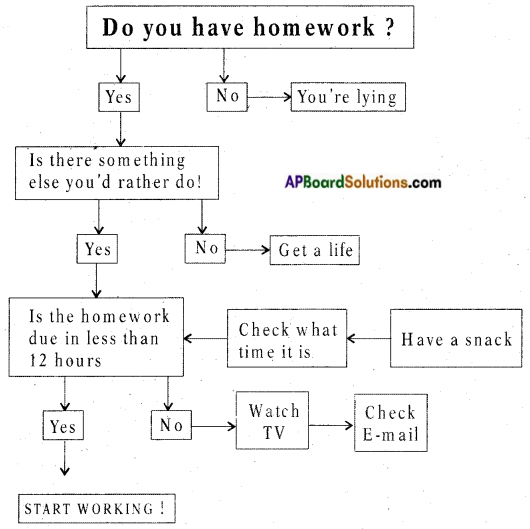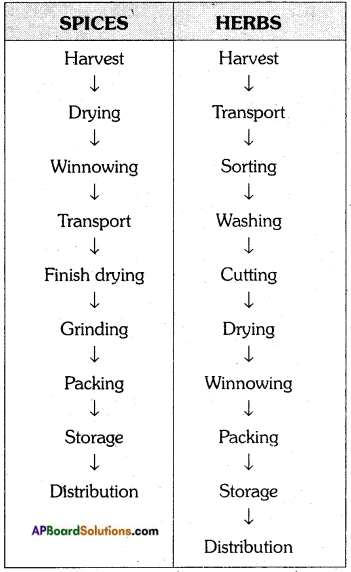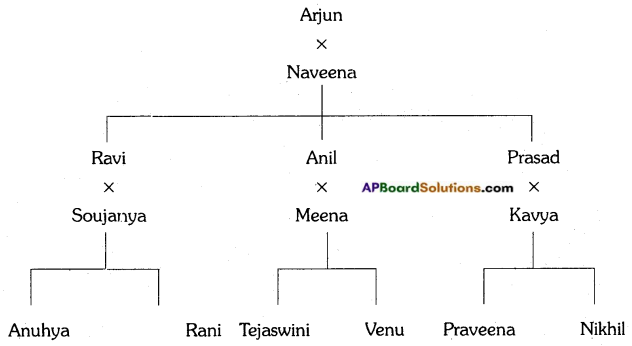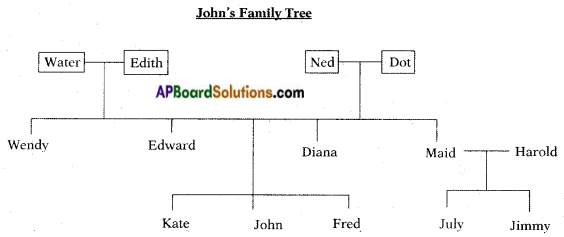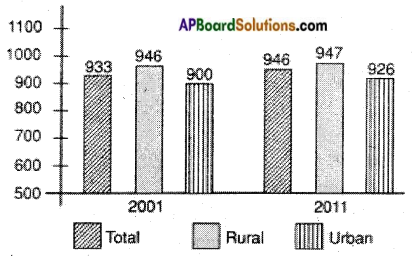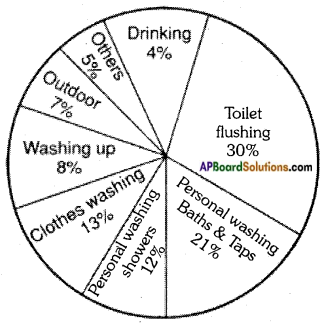AP State Syllabus 7th Class English Important Questions Unit 2
7th Class English Important Questions Unit 2
Section – A: Reading Comprehension
A. Reading
1. Read the following passage carefully.
On the busy Bowbazaar Street in Calcutta there was an old building. It was the headquarters of the Indian Association for Cultivation of Science. In December, on a fine evening in 1927, there was much excitement in one of its laboratories. Chandrasekhar Venkata Raman was showing a visitor some of his instruments when a young man, K.S.Krishnan, rushed in and announced, “Professor Compton has won the Nobel Prize.”
Now answer the following questions:
1) What was there in the old building?
2) Where was the Indian Association for cultivation of Science located ?
3) When did this incident take place?
4) Why was there such an excitement in the laboratory?
5) Who was the famous scientist mentioned in the passage?
6) What was C.V. Raman doing?
7) Who was the young man mentioned in the passage?
8) What did K.S. Krishnan announce?
9) Who won the Nobel Prize?
10) When did professor Compton win Nobel Prize?
Answers:
1) In the old building there was the head quarters of the Indian Association for Cultivation of Science.
2) The head quarters of the Indian Association for Cultivation of Science was located in Bowbazaar street in Calcutta.
3) This incident took place in December of 1927.
4) C.V. Raman was showing a visitor some of his instruments.
5) C.V. Raman was the famous scientist mentioned in the passage.
6) C.V. Raman was showing a visitor some of his instruments.
7) The young man mentioned in this passage was K.S. Krishnan.
8) K.S. Krishnan announced that Professor Compton had won the Nobel Prize.
9) Professor Compton won the Nobel Prize.
10) Professor Compton won the Nobel Prize in 1927.

2. Read the following passage carefully.
Raman was equally delighted. “Excellent news,” he said, smiling at the visitor and then he was lost in thought. “But…. look here, Krishnan,” he said turning to the young man, “if this. Compton Effect is true of X-rays, it must be true of light too.”
A few years earlier, A.H.Compton had shown that the nature of X-rays changes when passed through matter. The change was dependent on the kind of matter. This effect was called the ‘Compton Effect.’
Now answer the following questions:
1) Why was Raman equally delighted?
2) What was the ‘Excellent news’?
3) “He was lost in thoughts” – What was he thinking?
4) What was the assumption made by C.V. Raman?
5) What do you mean by ‘Compton Effect’?
6) What did A.H. Compton show?
7) Does the nature of X-rays change in the same way when pass through all kinds matter?
8) “It must be true of light too” – What does ‘it’ refer to?
9) If A.H. Compton had not discovered the Compton Effect, do you think Raman would have discovered the ‘Raman Effect’?
10) What does the change of nature of X-rays depend on?
Answers:
1) “If the Compton Effect of X-rays is true. It must be true of light too.” It made C.V. Raman equally delighted.
2) The news that “Professor Compton has won the Nobel Prize” was excellent.
3) He was thinking that, if the Compton Effect of X-rays is true, it must be true of light too.
4) If Compton Effect is true of X-rays, it must be true of light too. ’
5) The nature of X-rays changes when passed through matter. The matter was dependent on the
kind of matter. The effect was known as ‘The Compton Effect”.
6) A.H. Compton showed that the nature of X- rays changes when passed through matter.
7) No. The nature of X-rays changes dependent on the kind of matter.
8) The assumption that the nature of light changes when it passes through matter.
9) From the passage we can understand that C.V. Raman had already formulated his theory and he was about to announce his ‘Raman Effect’. But the Compton Effect give him confidence. Hence I can say if Compton Effect had not been discovered C.V. Raman would have discovered his ‘Raman Effect’.
10) The nature of X-rays change when it passes through matter depending on the kind of matter.
3. Read the following passage.
Could light also change its nature when passed through a transparent medium? That was the question that Raman asked himself. For five years he had been doing research in optics, the science of light. No sophisticated equipment was available in his laboratory, but Raman was confident that he could find the answer with some modifications in his equipment.
Four months later, on March 16,1928, Raman announced his discovery of ‘new radiation’ (describing the behaviour of a beam of light passing through a liquid chemical) to an assembly of scientists at Bangalore (now called Bengaluru).
Now answer the following questions :
1) What was the question Raman asked himself?
2) How long had he been doing research on light?
3) What do you mean by optics?
4) What was the setback faced by C.V. Raman in his research?
5) How was C.V. Raman able to find solution to his problem?
6) When did Raman announce his discovery?
7) What was the discovery made by C.V. Raman?
8) How is Bangalore now called?
9) Where did Raman announce his discovery?
10) To whom did C.V. Raman reveal his discovery to?
Answers :
1) Raman asked himself whether light could also change its nature when passed through a transparent medium.
2) He had been doing research on light for five years.
3) Optics means the science of light.
4) No sophisticated equipment was available in his laboratory.
5) Ramart was able to find the answer with some modifications in his equipment.
6) Raman announced his discovery on 16th March, 19281
7) Raman discovered ‘new radiation’ describing the behaviour of a beam of light passing through a liquid chemical.
8) Bangalore is now called ‘Bengaluru’.
9) Raman announced his discovery in Bengaluru.
10) C.V. Raman described his discovery to an assembly of scientists.

4. Read the following passage.
The world hailed the discovery as the ‘Raman Effect’. For scientific research in this country, it was a red-letter day. His discovery caught the attention of the world. With equipment worth hardly Rs. 200/- and limited facilities, Raman was able to make a discovery which won him the Nobel Prize in physics in 1930.
Now answer the following questions :
1) How was C.V. Raman’s discovery hailed as?
2) What was a red-letter day?
3) What do you mean by the phrase “red-letter day “?
4) What was the day ‘a red-letter day’ for?
5) What was so special about Raman’s discovery?
6) What did his discovery fetch him?
7) When did C.V. Raman win the Nobel Prize?
8) In which subject did C.V. Raman win Nobel Prize?
9) “For his scientific research in his country” – Which country did he belong to?
10) What do you mean by ‘Raman Effect’?
Answers : .
1) C.V. Raman’s discovery was hailed as ‘Raman Effect’.
2) March, 16, 1928 was a red-letter day.
3) The phrase ‘a red-letter day’ means an important day.
4) The day was the red-letter day for scientific research in his country.
5) Raman was able to make a discovery with equipment worth hardly Rs. 200 and limited facilities.
6) His discovery fetched him the Nobel Prize.
7) C.V. Raman won the Nobel Prize in 1930.
8) C.V. Raman won the Nobel Prize in Physics.
9) C.V. Raman belonged to India.
10) Raman Effect means that the light change its nature when passed through a transparent medium.
5. Read the following passage.
Raman was born on November 7, 1888, at Tiruchirapalli in Tamil Nadu. His father was a college physics teacher. He was a brilliant student right from the start. When Raman passed his matriculation, his parents were keen to send him abroad for higher studies. But on medical grounds, a British surgeon advised them against it and Raman stayed in the country to do the M.A. course at Presidency College in Madras (now called Chennai).
Now answer the following questions:
1) When was C.V. Raman born?
2) Where was C.V Raman born?
3) What was C.V. Raman’s father?
4) “He was a brilliant student right from the start” – Who does ‘he’ here refer to?
5) What did his parents want to do when he passed matriculation?
6) Why could C.V. Raman not go abroad for higher studies?
7) What did the British surgeon advise him?
8) ” …….. a British surgeon advised them against it” — What does it refer to?
9) Where did C.V. Raman do his M.A. course?
10) How is Madras now called?
Answers:
1) C.V. Raman was born on November 7, 1888.
2) C.V. Raman was born at Tiruchirapalli in Tamil Nadu.
3) C.V. Raman’s father was a Physics teacher.
4) ‘He’ here refers to C.V. Raman.
5) When C.V. Raman passed his Matriculation his parents decided to send him to abroad for higher studies.
6) He was unable to go abroad for higher studies because a British surgeon advised him against it on medical grounds.
7) The British surgeon advised them not to send C.V. Raman abroad for higher studies because his, health did not support him.
8) It here refers to go abroad.
9) C.V. Raman did his M.A. course at Presidency College in Madras.
10) Madras is now called Chennai.

6. Read the following passage.
In his youth, Raman was mainly interested in acoustics, the science of sound. He studied how stringed instruments like the violin and the sitar could produce harmonious music.
He was elected to the Royal Society of London in 1924 and the British Government made him a knight of the British Empire in 1929. It was a high honour for any great scientist.
His advice to young scientists was to look at the world around them and not to confine themselves to their laboratories. “The essence of science,” he said, “is independent thinking and hard work, not equipment.”
Now answer the following questions:
1) What was Raman mainly interested in?
2) What do you mean by acoustics?
3) What did he study in acoustics?
4) How did the British Government honour him?
5) When was he elected to Royal Society of London?
6) What was an honour for any scientist?
7) What was Raman’s advice to young scientists?
8) What is ‘the essence of science’ according to C.V. Raman?
9) What are the stringed instruments mentioned in the passage?
10) What does the word ‘harmonious’ mean?
Answers:
1) Raman was mainly interested in acoustics.
2) Acoustics is a science of sound.
3) In acoustics he studied how stringed instruments such as the violin and the sitar could produce harmonious music.
4) The British government honoured him by making him the knight of the British Empire.
5) He was elected to Royal Society London in 1924.
6) Receiving the knighthood of the British Empire is an honour to any scientist.
7) Raman advised the young scientists not to confine themselves to their laboratories but to
look at the world.
8) According to C.V. Raman, the essence of science is independent thinking and hardwork not equipment.
9) The violin and the sitar are the stringed instruments mentioned in the passage.
10) The word ’harmonious’ means ‘very pleasant’.
7. Read the following passage.
C.V.Raman was the first Indian scholar who studied wholly in India and received the
Nobel Prize. He was the first Asian and the first non-white to win such a great award in science. He passed away in 1970 on November 21. But his memories are with us. February 28, the day on which he discovered the ‘Raman Effect’, is celebrated as National Science Day to commemorate his remarkable achievement in science.
Now answer the following questions:
1) Who was the first Indian scholar that studied wholly in India and received the Nobel Prize?
2) What was so special in C.V. Raman’s winning Nobel Prize?
3) When did C.V. Raman die?
4) When did C.V. Raman discover Raman Effect?
5) On which day do we celebrate the National Science Day in India?
6) Why do we celebrate the National Science day on 28th February?
7) What was the remarkable achievement of C.V. Raman?
8) Who was the first Asian to receive the Nobel Prize in science?
9) Who was the first non-white to receive the Nobel Peace Prize?
10) What does the phrase ‘pass away’ mean?
Answers :
1) C.V. Raman was the first Indian scholar who wholly studied in India and received the Nobel Prize.
2) a) C.V. Raman was the first Indian scholar who wholly studied in India and received the Nobel Prize.
b) C.V. Raman was the first Asian and the first non-white to win Nobel Prize in Science.
3) C.V. Raman died on 21st November 1970.
4) C.V. Raman discovered Raman Effect on 28th February 1928.
5) We celebrate National Science day on 28th February in India.
6) We celebrate our National Science day on 28th February because on the same day of 1928 Raman discovered Raman Effect. .
7) Discovering ‘Raman Effect’ was the remarkable achievement of C.V. Raman.
8) C.V. Raman was the first Indian to receive the Nobel Prize in science.
9) C.V. Raman was the first non-white to receive the Nobel Prize in science.
10) The phrase ‘pass away’ means ‘to die’.

B. Reading
1. Read the following lines.
Mum, I don’t want to go to school today,
‘Cause I fear our world is in decay.
I feel my teachers are part of the plot,
I’m the only one who sees through the rot.
Scientists are cloning pigs and sheep,
Saying, it’s change – a quantum leap.
Biologists are making stem cells grow,
Saying, it’s change – the way to go.
Now answer the following questions:
1) Who is the speaker of these lines?
2) I’m the only one who sees through the rot.
What is the poet trying to convey by the underlined words above?
3) Who are the parts of the plot to ruin the world?
4) What change are the biologists bringing in?
5) What is considered a quantum leap?
Answers:
1) The speaker of these lines is a school going child.
2) The speaker means that humans are destroying nature and the Earth. So, many changes are happening in the world now.
3) The speaker fears that teachers are part of the plot.
4) Biologists are making stem, cells grow.
5) Cloning of pigs and sheep is considered a quantum leap.
Additional Questions (i):
1) Who is the speaker of these lines?
2) Can you guess the age of the speaker?
3) What do you mean by ‘plot’?
4) What is the speaker’s complaint?
5) Pick out the rhyming words from above.
Answers:
1) School going girl.
2) The speaker is a small child. I can say that because she is a school-going girl.
Actually the poet “Emma Gorrie’ was an bight year old girl when she wrote the poem, she wrote this poem for a competition.
3) The scientists made a plot to destroy the world.
4) The speaker’s complaint is that the teachers are teaching her about the discoveries of scientists which she feels are causing the decay of the world.
5) today – decay; plot – rot; sheep – leap; grow – go.
Additional Questions (ii):
1) Why does not the speaker want to go to school?
2) “I fear our world is in decay” – How can you support the speaker’s statement?
3) Who are part of the secret plans to decay the world?
4) What are the teachers a part of?
5) What are the scientists doing?
6) How do the scientists feel about cloning?
7) What do you mean by cloning?
8) How would you feel if a scientist cloned you?
9) “I am the only one who sees through the rot” – What does ‘the rot’ here mean?
10) Why does the speaker only understand the plot?
Answers:
1) Because in her school she was taught many scientifical developments and discoveries which she fears leads to the decay of the world.
2) The scientists were able to find out so many things about the world that tells about the decay of the world. But scientists are not responsible for the decay of the world as the poet thinks of but the human beings are exploiting the nature and environment and in such a way they are causing the decay of the world.
3) According to the poet the teachers are part of the plot.
4) The teachers are the part of the plot made by scientists.
5) The scientists are cloning pigs and sheep.
6) The scientists feel that cloning as a quantum leap.
7) Producing an exact copy of an animal using DNA fragments, cells of the animals.
8) If a scientist cloned me I would be very much excited to see another ‘me’, with the same
appearances, mannerisms and resemblances of mine.
9) The rot here means that those worst things which cause the decay of the world.
10) The poet sees the negative side of the scientists findings and they cause a lot of concern to her.

2. Read the following lines.
Biologists are making stem cells grow,
Saying, it’s change — the way to go.
Geologists are finding cracks in our earth,
Saying, it’s change — predicting its birth.
Archaeologists are digging up fossils and bones,
Saying, it’s change — time for clones.
Yes, scientists are causing me great concern,
Giving us kids too much to learn!
Now answer the following questions:
1) What are the biologists doing?
2) What do the biologists say when they make the stem cells grow?
3) What do the geologists discover?
4) After finding the cracks what are the geologists able to discover?
5) What are the archaeologists doing?
6) What do the archaeologists say when they find out fossils and bones?
7) What do the archaeologists want to clone?
8) In what way are the scientists causing a great concern?
9) Who are causing a great concern to the students?
10) What do you mean by ‘stem cell’?
11) What do you mean by fossil?
12) What does an archaeologist do?
13) Pick out the word that describes the person who studies the life of plants and animals.
14) Pick out the word which describes a person who studies the interior of the earth and rocks.
15) Are the scientists actually causing a great concern? Support your answer.
Answers :
1) The biologists are making the stem cells grow.
2) When they make the stem cells grow, the biologists say that it is a change and it should be the’way to happen.
3) The geologists find the cracks in our earth.
4) After finding the cracks in the earth the geologists are able to*predict the process of the birth of the earth.
5) Archaeologists are digging up fossils and bones.
6) The archaeologists say it’s a change and they say it’s time to clone the ancient animals using fossils and bones.
7) The archaeologists want to clone fossils and bones.
8) The scientists are causing a great concern to students by discovering a lot of new things and making the students to learn all these things.
9) The scientists are causing a lot of concern to the students.
10) The stem cells means a basic type of cell from which all other cells develop.
11) The fossil means the remains of an animal or a plant which have become hard and turned into rock.
12) Archaeologist is a person who studies the buried remains of ancient times.
13) The person who studies the life of plant animals is called a biologist.
14) Geologist.
15) No. The scientists are not causing a great concern. When they find out something serious about the existence of the world they warn us. They also suggest us some measures to protect the environment and the nature.

C. Reading
1. Read the following passage.
It was midnight when Susruta was awakened by a frantic knocking at the door.
“Who’s out there?” asked the aged doctor, taking a lighted torch from its socket in the wall and approaching the door.
“I’m a traveller, my revered Susruta,” was the anguished reply. “A tragedy has befallen me. I need your help….”
Susruta opened the door. What he saw was a man kneeling before him, tears flowing from his eyes and blood from his disfigured nose.
“Get up, my son, and come in,” said Susruta. “Everything will be all right. But be quiet, now.”
He led the stranger to a neat and clean room.
Now answer the following questions:
a) Who was the aged doctor mentioned in the passage ?
b) How was the traveller when Susruta saw him?
c) What time of the day did the above incident take place?
d) Why did Susruta take the traveller into a room?
e) Who helped the traveller?
Answers:
a) Susrutha
b) tears flowing from his eyes and blood from his disfigured nose
c) It was midnight.
d) to treat his disfigured nose
e) Susrutha helped the traveller.
Additipnal Questions (i):
a) When was Susruta awakened?
b) What was the profession of Susruta?
c) How was the traveller’s nose?
d) Where was the lighted torch?
e) What did Susruta say to the traveller?
Answers:
1) At midnight
2) Doctor
3) Disfigured
4) It was in a socket in the wall.
5) Susruta told the traveller that everything would be alright and suggested him to be quiet
then.
Additional Questions (ii):
1) Who was Susruta?
2) Who awakened Susruta at midnight?
3) What do you mean by the word “Frantic”?
4) Why was the traveller anguished?
5) Why were there tears in the eyes of the traveller?
6) What did the traveller ask Susruta?
7) What was the tragedy befallen to him?
8) What help do you think did the traveller needed from Susruta?
9) How did Susruta receive him?
10) What do you understand about Susruta by the way he received the traveller?
Answers:
1) Susruta was an ancient surgeon.
2) A traveller awakened Susruta at midnight.
3) Quick and unorganised
4) Because his nose was disfigured and there was a lot of bleeding.
5) Because his nose was cut off and it was bleeding heavily.
6) The traveller asked Susnita for his help.
7) The tragedy befallen to him was his nose was cut off and it was bleeding heavily.
8) The traveller needed the treatment for Susruta. He wanted his nose to be operated.
9) Though it was a midnight, though he was very old he received the traveller with love and he assured him everything would be all right and he would be quite well very soon.
10) By the way he received the traveller we can understand that Susruta was very kind and considerate. He did not frighten the patient but gave him assurance that he Would be quite very soon.

2. Read the following passage.
He led the stranger to a neat and clean room, with surgical instruments on its walls. He washed his face with water and the juice of a medicinal plant. He then offered him a mug of wine and began preparing for the operation.
With a large leaf of a creeper brought from the garden, he measured the size of the stranger’s nose. Taking a knife and forceps from the wall, he held them over a flame and cut a strip of flesh from the stranger’s cheek. The man moaned, but the wine had numbed his senses.
Now answer the following questions:
1) Where did Susruta take him to?
2) How was the room?
3) What do you think was the room used as?
4) What did Susruta do as soon as he took the man inside the room?
5) Why do you think Susruta offered him a mug of wine?
6) How did Susruta use the leaf of a creeper?
7) What did Susruta do with knife and forceps?
8) Why did Susruta cut a strip of flesh from the traveller’s check?
9) How could the traveller bear the pain of the surgery?
10) What did Susruta use wine for?
Answers:
1) Susruta took the traveller to a neat and clean room.
2) The room was neat and clean with surgical instruments on its walls.
3) I think the room was used as an operation theatre.
4) As soon as Susruta took the man inside the room he washed his face with water and the juice of a medicinal plant.
5) I think Susruta offered him a mug of wine for making his senses ‘numb’ when he was being operated on.
6) Susruta used the leaf to measure his nose.
7) Susruta used the knife and forceps to cut a strip of flesh from the stranger’s cheek.
8) Susruta wanted to use the flesh to make up the cut off nose.
9) The traveller drank a mug of wine and it numbed his senses when he was operated upon
and thus he was able to bear the pain of the surgery.
10) Susruta used the wine as an anaesthesia.
3. Read the following passage.
In this manner Susruta mended a nose some 26 centuries ago. And what he did is not greatly different from what a plastic surgeon would do today. In fact, Susruta is today recognised as the father of plastic surgery all over the world. His treatise, Susruta samhita, has considerable medical knowledge of relevance even today. It indicates that India was far ahead of the rest of the world in medical knowledge.
Now answer the following questions:
1) When did Susruta live?
2) What did he do 26 centuries ago?
3) How is Susruta recognised today?
4) Who wrote ‘Susruta Samhita’?
5) What did ‘Susruta Samhita’ indicate?
Answers:
1) Susruta lived 26 centuries ago.
2) Susruta did a plastic surgery 26 centuries ago.
3) Susruta is recognised as the father of plastic surgery all over the world.
4) Susruta wrote Susruta Samhita.
5) Susruta Samhita indicates that India was far ahead of the rest of the world in medical knowledge.

4. Read the following passage.
Born in the sixth century B.C., Susruta was a descendant of the Vedic sage Viswamitra. He learnt surgery and medicine at the feet of Divodasa Dhanvantari in his hermitage at Varanasi. Later, he became an authority in not only surgery but also in other branches of medicine.
He was the first physician to advocate what is today known as the ‘caesarean’ operation. He was also an expert in removing urinary stones, locating and treating fractures and doing eye operations for cataract. His suggestion to give wine to patients about to be operated upon makes him also the father of anaesthesia.
Now answer the following questions:
1) When was Susruta born?
2) What relation did Susruta have with Viswamitra?
3) Where did Susruta learn surgery and medicine?
4) Who was the first physician to advocate ‘Caesarean operation’?
5) What was Susruta expert in?
6) Who is considered as the father of anaesthesia?
7) What makes him to consider as the father of anaesthesia?
8) Where was Dhanvantari’s hermitage?
9) Who was Dhanvantari?
10) What is ‘Caesation operation’ aimed at?
Answers:
1) Susruta was born in 6th century B.C.
2) Susruta was the descendent of Viswamitra.
3) Susruta learn surgdbry and medicine at the feet of Dhanvantari at his hermitage in Varanasi.
4) Susruta was the first physician to advocate caesarian operation.
5) Susaita was expert in removing in urinary stones, locating and treating fractures and doing eye operation, for-cataract.
6) Susruta is considered as the father of anaesthesia.
7) His suggestion to give wine to patients about to be operated upon makes him the father of anaesthesia.
8) Dhanvantari’s hermitage was in Varanasi.
9) Dhanvantari was an Indian ancient physician and he was the teacher of Susruta.
10) Caesarean operation is aimed at family planning.
5. Read the following passage.
Susrutha was born in the sixth century B.C. He belonged to the clan of Viswamitra. He learnt medicine and surgery at the feet of Divodasa Dhanvantari in his hermitage at Varanasi. Later, he became an authority in not only surgery but also in other branches of medicine.
Susrutha was the first physician to advocate what is today known as the ‘caesarean’ operation. He was also an expert in removing urinary stones, locating fractures and doing eye operations for cataract.
Now, answer the following questions.
1) Which period did Susrutha belong to?
2) What did Susrutha learn from Dhanvantari?
3) Pick out the Word which means ‘a shelter’.
4) Which operation did Susrutha recommend?
5) How did Susrutha great cataract?
Answers:
1) Susrutha belonged to sixth century B.C.
2) medicine and surgery
3) a hermitage
4) caesarean operation
5) by performing operations

Unseen Comprehension
1. Read the following passage carefully.
There seems to be a general opinion in this country that ‘Sardar Patel was slightly of a harsh and rough temperament. People call him ‘The Iron Man of India”. He was, no doubt, an iron man in the sense that one could rely on him for strict and efficient administration. But as a man, those who had the good fortune of coming into close contact with him, he was kind and considerate. At times he even became emotional, where his personal friends and followers were concerned. He knew the way of picking people and placing them in their proper places. When the native princes refused to amalgamate their kingdoms with the Indian Union, he was forced to take military action on the states like Kashmir, Nizam and Nawanagar. His mission was successful. At times he was not in good terms with Jawaharlal Nehru. Gandhiji used to intervene and cleared the differences between them.
Now answer the following questions.
1) What is the general opinion in the country about Sardar Patel?
Answer:
The general opinion in the country that Sardar Patel was of a harsh and rough temperament.
2) Why was Patel called ‘The Iron Man of India”?
Answer:
Patel was called “The Iron man of India” because everyone could rely on him for strict and efficient administration.
Choose the correct answer from the choices given.
3) What did Patel know? ( )
a) Putting the right man in the right job
b) Pacifying the differences with others
c) How to take military action on princely states
Answer:
a) Putting the right man in the right job
4) Why did Patel take military action on three native states? ( )
a) Because they refused to surrender their states
b) As they demanded high compensation
c) Since they supported the British rule
Answer:
a) Because they refused to surrender their states
5) What is the phrase used in the passage that means ‘be friendly with’? ( )
a) rough temperament b) picking people c) in good terms
Answer:
c) in good terms
2. Read the following passage carefully.
Swami Vivekananda, speaking in America, told a story in order to impress upon his hearers how very little as a rule, people really longed for God. He told of a young man who came to a religious teacher and said that he wanted to find God. The sage smiled and said nothing. The young man returned home. After many days he met the sage and put him the same question. The sage asked him to accompany him as he went to the river to take his morning bath; and when both were in the river, the sage took hold of the young man and plunged him under the surface of the water and held him there. The young man struggled and struggled to take off his hold. Finally the sage raised him out of the water, and said to him, “My son, what did you long for most when you were under the water ? “A breath of air”, gasped the youth. ‘Thus must the disciple long for God. If you have firm belief in God, you will find Him.”
Now answer the following questions.
1) What did the young man long for when he was under the surface of the water?
Answer:
The young man longed for a gasp of air when he was under the surface of the water.
2) When can one find God according to the sage?
Answer:
According to the sage, one can find God if he has a firm belief in Him. He longed for God as greatly as he longed for a gasp of air when he was under the surface of water.
Choose the correct answer from the choices given:
3) What was the intention of Swami Vivekananda? ( )
a) To tell the people that God exists
b) To impress on the people to follow his ideals
c) To treat him as a religious teacher
Answer:
c) To treat him as a religious teacher
4) What did the sage ask the young man to do? ( )
a) To take regular bath in the morning
b) Not to doubt the existence of God
c) To follow him to the river
Answer:
c) To follow him to the river
5) When both were in the river, what did the sage do with the young man? ( )
a) He plunged him under the surface of the water
b) He raised him out of the water
c) He made the young man realise the existence of God.
Answer:
a) He plunged him under the surface of the water

3. Read the following passage carefully.
Up the river Hudson in North America are the Catskill mountains. They are not so high as the Himalayas in India. In a certain village at the foot of these mountains there lived long ago a man called Rip Van Winkle. He was simple and good natured. A very kind neighbour and a great favourite of all the good wives in the neighbourhood. The women took his side and put the blame on Dam Van Winkle.
The children of the village too would shout with joy whenever they saw him. He made play things for them. He told them fairy tales. So they liked him.
Now answer the following questions.
1) Why did children like Rip Van Winkle?
Answer:
Rip Van Winkle used to make play things for children. He told them fairy tales. So children liked Rip Van Winkle very much.
2) What kind of man was Rip Van Winkle?
Answer:
Rip Van Winkle was simple and good natured. He was a very kind neighbour and a great favpurite of all the women and children in the village.
Choose the correct answer from the choices given:
3) Where are the Catskill mountains? ( )
a) In South America
b) In Africa
c) In North America
Answer:
c) In North America
4) Where did Rip Van Winkle live? ( )
a) On the top of Catskill mountains
b) In a village at the foot of the Catskill mountains
c) In a city in North America
Answer:
b) In a village at the foot of the Catskill mountains
5) Who liked Rip Van Winkle very much? ( )
a) All the wives in the neighbourhood
b) All the husband? in the neighbourhood
c) All the friends in the village
Answer:
a) All the wives in the neighbourhood
4. Read the following passage carefully.
In the American War of Independence, a Corporal and a party of soldiers were ordered to raise a heavy beam for a battery that was being repaired. There were too few men for the work, but the Corporal, full of his dignity did nothing but stand by and shout orders, pres-ently an officer, not in uniform rode up. “Hallo,” he said to Corporal, ’why don’t you lend your men a hand to get that beam up? “Don’t you know that I am a Corporal ? was the reply, “Are you ?” said the officer, who then got down from his horse and joined the men. He worked till the sweat streamed down his face. When the beam had been raised and put to its place, he turned to the Corporal and bade him a low bow, “Good day Mr. Corporal. Next time when you have too few men for this kind of work, send for the Commander in Chief and I shall be happy to.help you again.”
It was George Washington himself.
Now answer the following questions.
1) Why did the officer get down from the horse?
Answer:
The officer got down from his horse to help the men in their work.
2) Who was the person that helped the men and the Corporal?
Answer:
The person that helped the man and the Corporal was none other than the President of America, George Washington.
Choose the correct answer from the choices given:
3) What was to be raised? ( )
a) A battery
b) A cannon
c) A beam
Answer:
c) A beam
4) Who was the person that was having dignity? ( )
a) The Corporal
b) The Soldier
c) The President
Answer:
a) The Corporal
5) What did the Corporal have? ( )
a) Very few men
b) Many men
c) A lot of soldiers
Answer:
a) Very few men

5. Read the following passage carefully.
Thirteen hundred years ago, a great traveller from China came to India in search of wisdom and knowledge. His name was Hiuen Tsang and over the deserts and mountains of the north he came, braving many dangers, facing and overcoming man obstacles so great was his thirst for knowledge and he spent many years in India learning himself and teaching others. He stayed at the great university of Nalanda, which existed then near the city, that used to be called Pataliputra and is now known as Patna. Hiuen Tsang was given the ‘title of ‘Master of Law’ the law of the. Buddha. He journeyed all over India and saw and studied the people. Later he wrote a book of his travel known as Si-Yu-Ki.
Now answer the following questions.
1) How did Hiuen Tsang spend many years in India?
Answer:
Hiuen Tsang spent many years in India learning himself and teaching others.
2) What was the earlier name of the city, Patna?
Answer:
Pataliputra
Choose the correct answer from the choices given below.
3) What was the title given to Hiuen Tsang? ( )
a) Master of Wisdom
b) Master of Law
c) Master of Nalanda
Answer:
b) Master of Law
4) Hiuen Tsang came to India in search of ( )
a) Si-Yu-Ki.
b) deserts and mountains
c) wisdom and knowledge.
Answer:
c) wisdom and knowledge.
5) Choose the correct statement from the following. ( )
a) Hiuen Tsang spent a few years in India.
b) The book, ‘Si-Yu-Ki’ was written by Hiuen Tsang.
c) Hiuen Tsang went to China to teach at Nalanda University.
Answer:
b) The book, ‘Si-Yu-Ki’ was written by Hiuen Tsang.
Additional Questions:
1) Why did Hiuen Tsang come to India?
Answer:
Hiuen Tsang came to India in search of wisdom and knowledge.
2) How did Hiuen Tsang come to India?
Answer:
He crossed the deserts and mountains of the north. He overcame many dangers, many obstacles and came to India.
Choose the correct answer from the choices given.
3) What was the title given to Hiuen Tsang?
a) Master of science
b) Master of Arts
c) Master of Law
Answer:
c) Master of Law
4) What did Hiuen Tsang cross over?
a) Deserts and mountains
b) Rivers and plains
c) Valley and meadows
Answer:
a) Deserts and mountains
5) Where did he stay?
a) At Pataliputra
b) At Patna
c) At Nalanda
Answer:
c) At Nalanda

6. Read the following passage.
When you read a book, it feels great to put yourself into the world the writer has created for you. The habit of reading good content daily will act as an exercise for your mind and keep you mentally fit and flexible. Reading a book does not mean that you read a book only in English, it can be in any language in which you feel comfortable. If you have never given it a try then always remember that it’s never too late to start a good habit.
Books are of many types. Some books inspire us, some books give us a moral, some books act as a turning point in our lives. Reading books also improves our language and vocabulary. Sometimes books bring tears or laughter. The first book in the life of every person is their mother.
Books like the Gita, the Mahabharata, the Quran and the Bible inspire us and teach the best lessons of our life. Some books enlighten us with the great works, struggles and achievements of great people in the society. If you want to select a best friend in life, then it’s time to select books as your best friends because books give good company in our good or
bad times.
Now, answer the following questions.
1) Why can books be our best friends according to the passage?
Answer:
because books give good company in our good or bad times
2) Which books inspire us and teach us the best lessons?
Answer:
Books like the Gita, the Mahabharatha, the Bible and the Quran inspire us while reading.
Choose the correct answer from the choices given below.
3) The habit of reading good content in books helps us ( )
a) to stay physically healthy
b) to be away from friends
c) to be mentally fit and flexible
Answer:
c) to be mentally fit and flexible
4) Choose the first book for any person. ( )
a) The Gita
b) Our mother
c) The Bible
Answer:
b) Our mother
5) Which of the following statements is TRUE? ( )
a) We don’t need books if we have our mother’s company.
b) Books bring out different emotions in us.
c) We should read only holy books.
Answer:
b) Books bring out different emotions in us.

Unseen (Data Interpretation)
1. In the table given below the data is given about different age groups in different employment sectors.
Read the table and answer the following questions:
| Employment | 18-25 | 25-40 | 40-65 |
| Sector | age group | age group | age group |
| agriculture | 5 | 7 | 9 |
| manufacturing | 12 | 15 | 23 |
| health | 12 | 15 | 12 |
| retail | 23 | 7 | 6 |
| accountancy | 3 | 2 | 3 |
| education | 9 | 12 | 12 |
Now answer the following questions.
1) What does the above table show?
2) In which sector are very small member of people working?
3) In which sector are maximum number of people working?
4) In which sector are maximum number of young people working?
5) In which sector are maximum number of old people working?
Answers:
1) The above table shows people of different age groups working under different employment sectors.
2) In education sector very small number of people are working.
3) In manufacturing sector maximum number of people are working.
4) In retail sector maximum number of young people are working.
5) In manufacturing sector maximum number of old people are working.
2. Study the pie-charts and answer the questions given below them.

Now answer the following questions.
1. Which of the following constitute most of the weight in the human body? ( )
a) water
b) proteins
c) dry elements
d) bones
Answer:
a) water
2. Which of the following statements is correct? ( )
a) Proteins constitute 11 per cent of the human body.
b) Dry elements constitute 15 pet cent of the human body.
c) Hormones, enzymes and other proteins constitute 2/5 of the human body.
Answer:
c) Hormones, enzymes and other proteins constitute 2/5 of the human body.
3. If a person’s weight is 100 kilograms, how much do his bones weigh?
Answer:
20 kgs
4. If the proteins in a person weight 12 kilograms, what will be his weight?
Answer:
50 kgs
5. Are the bones in our body heavier than the water in our body? Support your answer.
Answer:
The weight of bones in our body (in %) = \(\frac{1}{5}\) × 100 = 20 %
∴ Hence the bones in our body are not heavier than water in our body.

3. Study the table given below and observe the changing patterns of unemployment in some advanced countries. Answer the questions that follow.

Now answer the following questions.
1. How many countries are compared in the given table?
2. What period does the table represent?
3. Which country has the least unemployment rate in 2005?
4. Which country has a decrease of nearly 6% in unemployment rate between 2000 and 2006?
5. In the case of every country we can notice that (Choose the correct answer.)
a) The unemployment rate is steadily increasing.
b) The unemployment rate is steadily decreasing.
c) The unemployment rate is fluctuating i.e., sometimes it rises and sometimes it falls.
6. Which year recorded the highest unemployment rate for many countries?
7. Which country recorded the least fluctuations in the unemployment rate?
Answers:
1) Eight countries are compared in the given table.
2) The table represents the period 2000 – 2006.
3) Japan has the least unemployment rate in 2005.
4) Spain has a decrease of nearly 6% in unemployment rate between 2000 and 2006.
5) c) The unemployment rate is fluctuating i.e., sometimes it rises and sometimes it falls.
6) 2003
7) Germany
4. Read the following tree diagram showing the constituents of blood.

Now answer the following questions.
1) What are red cells called?
2) How many main constituents are there in blood? What are they?
3) How many categories are there in granulocytes?
4) Under which category do monocytes come?
5) Are neutrophils granulocytes or agranulocytes?
Answers:
1) Red cells are called Erythrocytes.
2) There are three main constituents are there in blood.
They are 1) erythrocytes 2) thrombocytes 3) leucocytes.
3) There are three sub categories in granulocytes.
4) Monocytes come under agranulocytes.
5) Neutrophytes are granulocytes.
5. Read the following pie-chart which shows the spendings of a country on various sports.
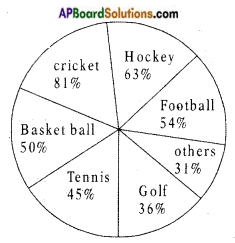
Now answer the following questions.
1) On which sports maximum amount is spent?
2) How much percent more is spent oh hockey than on golf?
3) How much percent less is spent on football than that on cricket?
4) The sum of total spendings on tennis and golf is equal to the total spending on which game?
5) The difference of spendings on cricket and basketball is equal to the spending on which game?
Answers :
1) On cricket
2) 27% (63% – 36%)
3) 27% (81% – 54%)
4) Cricket (45 + 36 = 81%)
5) other games (81 – 50)

6. Read the following tree diagram carefully.

Now, answer the following questions.
1) What does the above diagram show?
2) What are the three main categories of musical instruments?
Choose the correct answer from the choices given below.
3) Which of the following is a stringed instrument? [ ]
a) Harp
b) Horn
c) Tabla
4) What type of musical instrument is Xylophone? [ ]
a) Percussion instrument
b) Wind instrument
c) Stringed instrument
5) Which of the following statements TRUE based on the information given. [ ]
a) All string instruments are a type of percussion instruments.
b) Wood block is a wind instrument.
c) Guitar and Violin are stringed instruments.
Answers :
1) The above diagram shows a tree-diagram of musical instruments.
2) Three catagories.
(1) Wind instruments,
(2) Percussion instruments,
(3) Stringed instruments.
3) a) Harp
4) a) Percussion instrument
5) c) Guitar and Violin are stringed instruments.
7. Study the family tree of Bala Krishna.
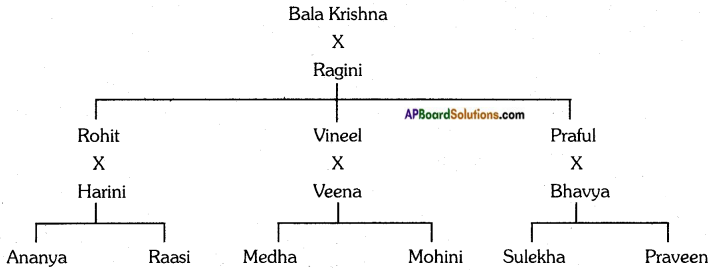
Now, answer the following questions.
1) Who are the grandparents of Praveen?
2) How many granddaughters does Bala Krishna have?
Choose the correct answer from the choices given below.
3) Medha is the daughter of [ ]
a) Rohit b) Veena c) Bhavya
4) Praveen and Raasi are [ ]
a) brothers b) cousins c) friends
5) Which of the following statements is TRUE based on the information given?
a) Rohit has two daughters.
b) Ananya and Raasi are cousins. [ ]
c) Rohit’s wife is Bhavya.
Answers:
1) Balakrishna and Ragini
2) Five granddaughters
3) b) Veena
4) b) cousins
5) a) Rohit has two daughters.

Section – B: Creative Writing
1. In the lesson ‘C.V. Raman, the Pride of India’, you have read about the greatness of C.V. Raman. Now, imagine that you are the secretary of the Science Club of your school and prepare a script for a speech to deliver on the National Science Day.
Use the following hints to write a script for the speech.
C.V. Raman – bom on November 7, 1888 – at Tiruchirapalli in Tamil Nadu – interested in science – spent much time in his laboratory – became a great scientist – bright student from the beginning – discovered the Raman Effect – the world hailed – caught the attention of the world – won the Nobel Prize in 1930 in Physics – research in optics – elected to the Royal Society of London – studied wholly in India – passed away on November 21 in 1970 – National Science Day on 28 February is celebrated on the day on which he discovered the ‘Raman Effect’.
Answer:
Honourable Judges, Teachers, Guests and all my dear friends. I have been given the privilege of speaking on C.V. Raman on this National Science Day. You know National Science Day is celebrated every year on 28th February in order to remember the great invention of ‘Raman Effect’ by C.V. Raman on the same day in the year 1928.
It is very much proper to know about Sri. C.V. Raman on this occasion. C.V. Raman was born on 7, November 1888 at Tiruchirapalli in Tamil Nadu. He became a great scientist who became the pride of India. He was a brilliant student from the beginning. He was interested in science. He wrote many research papers for science journals. He became the member of the Indian Association for cultivation of Science at the age of 19. He was elected to the Royal Society of London in 1924. He started his own laboratory with no sophisticated equipment. He spent much time in his laboratory. C.V. Raman had been doing research in optics, the Science of Light. On 16, March, 1928 Raman announced his discovery of ‘new radiation’ to an assembly of scientists at Bangalore. The world hailed this discovery as “Raman Effect”. With this he made all Indians proud. With equipment worth hardly Rs. 200 and limited facilities, Raman was able to make discovery. For his Raman Effect he was given a Nobel Prize in Physics in 1930. He was made a knight of the British Empire in 1929.
C.V. Raman was the first – Indian scholar who studied wholly in India and received Nobel Prize. He was the first Asian and first non-white to win such a great award in science. He passed away on 21, November 1970. But his memories are with us. So it is appropriate to celebrate 28th February of every year as National Science Day to commemorate C.V. Raman’s remarkable achievement in Science.
Thank you one and all for giving me this wonderful opportunity.
2. Write a biographical sketch on the life of Sri C.V. Raman.
Answer:
C.V. Raman was bom on November 7, 1888 at Tiruchirapalli in Tamilnadu. He was a brilliant student right from the start. When he passed his matriculation, his parents are keen on sending him to abroad for higher studies. But the doctors advised not to send him abroad for , higher studies On medical grounds. So Raman completed his M.A. course at Presidency Col-lege In Madras. He was very much interested in science. He used to write research papers in science journals. At the age of 19, he became a member of the Indian Association for Cultivation of Science. He took up an administrative job in Finance Ministry in Calcutta. Though he joined in an administrative job his interest in science did not flag. He used to spend hours after office in the lab of the Association, Raman was mainly interested in acoustics, the science of sound. Later he built his own laboratory. He was elected to the Royal Society of London in 1924. For five years he had done research in optics, the science of light. No sophisticated equipment was available in his laboratory. Finally on 28 February, 1928 Raman announced his discovery, which is known as ‘Raman Effect’. With equipment worth hardly Rs. 200/- and limited facilities, Raman was able to make a discovery. The whole world hailed his discovery. For his Raman Effect he got Nobel Prize in Physics in 1930.
C.V. was the first Indian scientist who studied wholly in India and received the Nobel Prize. He was the first Asian and the first non-white to win such a great, award, in Science. C.V. Raman passed away on 21, November 1970 February 28 the day on which he discovered the ‘Raman Effect’ is celebrated as ‘National Science Day’ to commemorate his remarkable achievement in Science.
3. Write a paragraph on J.C. Bose using the hints given below. You must use the right linkers to join the sentences.
Answer:
Jagadish Chandra Bose (J.C. Bose) was a famous- Indian Scientist. He was born on 30th September, 1858.
J.C. Bose studied at St. Xavier’s School in Calcutta. Later he went abroad for higher stud¬ies. He returned to India in 1885. He published a Monograph which was about the response in the living and the non-living. He became famous by being a Fellow of the Royal Society in 1920.
J.C. Bose invented wireless telegraphy in 1895. He proved that plants have life.
J.C, Bose invented Crescograph, an instrument with which the growth in plants can be known.
J.C. Bose founded the Bose Institute in Calcutta. He devoted most of his life to the study of plants J.C. Bose passed away on 23rd November, 1937.

4. On the occasion of Science Day you have to deliver a speech about our ancient Indian scientist and doctor, surgeon Susruta. Prepare a script for the speech using the following hints.
Susruta – born in 6th century B.C. – father of plastic surgery – great surgeon – first person – Rhinoplasty, plastic surgery to nose – given about 101 types of instruments – book – Susruta Samhitha – still in use – excellent teacher – pupils – good physician – both theory and practice.
Answer:
Honourable teachers, guests and all my dear friends. I have been given the privilege of speaking on Susruta, the ancient Indian scientist, doctor and the first plastic surgeon, on this National Science Day. You know National Science day is celebrated every year on 28th February in order to remember the great invention of Raman Effect by C.V. Raman on the same day in the year 1928.
On this day, it is very much proper to know about another great ancient scientist and doctor Susrutha. Susrutha was born in 6th century B.C. He learnt surgery and medicine from Dhanvantri in Varanasi. He became a great surgeon and physician. He was considered as father of plastic surgery. He was the first doctor to conduct Rhinoplasty, plastic surgery to nose. He designed 101 types of surgical instruments useful to perform for various surgeries. His treatise “Susruta Samhita” is a great reference book even today. He was an excellent teacher too.
He advocated the importance of practical. He advised his pupils to use carcasses and models for practice.
Thank you for giving me this opportunity on this auspicious day.
(A)
1. The Marriage of your elder sister is going to be held on 25th July 20xx at Vasavi Kalyana Mandapam, in Nellore. The bridegroom is an engineer. He is not taking any dowry. Write a letter to your friend inviting him to the marriage.
Answer:
Nellore.
10. 7. 20xx.
Dear Ravi,
I hope that you are in good health and you are going along nicely in your studies. Here I’m very glad to inform you that my elder sister’s marriage is going to be take place on 25th July 20x x at Vasavi Kalyana Mandapam, Nellore. The bridegroom is an engineer. He is working in B.D.L. Hyderabad. Their is a nice family. They seem to be friendly and dignified people. One thing I want to mention here that they are I not taking any dowry and they did demand any greedy gifts. I shall be very glad to see at you and your family at the function. Please inform your parents about the same and tell them that my parents will be pleased if they attend the function. My father wants to call your father and mother and invite them on phone. I have already posted the invitation on your father’s name. I shall be very glad if you come two days before and help me in preparations.
Convey my regards to your parents and my best wishes to your,little brother. Hoping that you will come, I remain.
Yours lovingly,
xxxxxx
Address on the Envelope:
R Ravi Kumar,
S/o Surya Narayana,
H.No: 1 – 20 – 22/A,
Malladivari street,
Gandhinagar,
Vijayawada.

2. You are Ravi. You’ve received a letter from your friend Rahul. Inviting you and your family to his elder sister’s marriage. But on the same day you and your family are attending your neice’s marriage at Hyderabad. Hence write a letter to your friend apologising him for not attending his sister’s marriage.
Answer:
Vijayawada.
12. 7. 20xx.
Dear Rahul,
It was great to hear from you and I’m really glad that things are working out for you there in your school.
I’m very glad to know about your sisters marriage. My parents are also very happy to know this. We are very much happy when we know about the gentlemanship of your would be brother-in-law. What a nice people they are! Who will marry a girl without taking a dowry these days ? We are very much pleased to know this.
Here I want to apologize you. We are unable to attend your sister’s marriage. We’re extremely sorry for not attending your sister’s marriage because the same day. We have to attend our cousins marriage at Hyderabad. Since the bride has no father, my parents are performing the rituals of the marriage . So we cannot avoid it My father asked me to convey his apologies to your father. He will write a letter to your father personally.
My parents asked me to convey their blessings and best wishes to your sister. We’ll visit your home at a convenient day very soon after the marriage.
Hoping that you’ll excuse us, I remain.
Yours lovingly,
xxxxxx
Address on the Envelope:
To
R. Rahul,
S/o R. Srinivasa Rao,
H.No: 8 – 3 – 1/A.
Chaturvedula vari street,
Trunk Road,
Nellore.
3. Write a letter to your friend asking him/her to visit your village during Dasara vacation. Describe what activities he/she can participate in during the festival along with you.
Answer:
H.No.: 242/7B,
Komaravallipadu.
20. 03. 20xx.
Dear Shashank,
I am safe here and I hope the same with you. I am studying well and I hope the same with you.
Now, I would like to invite you to come to my village in Dasara vacation and spend at least a week in my village. Ours is a family of six members – grandparents, my parents, me and my younger sister. My grandparents are very friendly and looking after our fields and cattle. My father is a high school teacher. My mother is a house-wife. She takes care of us very much. My sister studies in class V in our village.
Ours is a very beautiful village. There are a lot of places worth watching in our village. Beautiful green fields, ancient Lord Shiva’s temple and running streams and some others are worth watching. My mother will prepare delicious dishes for us.
We are looking forward to seeing you, Convey my regards to your parents and my best wishes to your little sister.
Awaiting your arrival ………….
Yours lovingly,
xxxxxx
Address on the Envelope:
To
C. Shashank,
S/o C. Ravi Prakash,
D. No. 18 – 208,
Nagaram Town
Keesara Mandal,
Hyderabad.
PIN: 500001.

4. Recently you paid a visit to your relatives place. You spent your holidays there. You visited a temple. You met new friends. You also attended some family functions.
Now, write a letter to your friend describing your visit to your relatives place. Also, invite your friend to visit your place.
Answer:
Tenali.
13-3-xx.
Dear friend,
We are all safe here and I hope the same with you all there. I am doing very well here. I hope you are also doing well there. In this I would like to write to you about how I enjoyed myself in my relative’s place.
During the recent holidays I paid a visit to my relative’s house. I spent all my holidays there. There I visited Sri Janardhana Swamy Temple which is said to be built by Sri Krishnadevaraya. It was famous for its architecture. The idols of Sridevi, Bhudevi and Sri Janardhana Swamy are beautiful and full of life. I have made some new friends there. They are very much amiable and sociable. I also attended some family functions there. All my stay there was quite entertaining, hectic and full of energy and enthusiasm.
Convey my regards to your parents. Why don’t you visit our place during the Sankranthi holidays? I am looking forward to seeing you here. I will assure you I will make your stay here full of fun and entertainment.
Yours lovingly,
xxxx
Addres on the Envelope:
To
xxxxx
S/o K. Krishna Reddy,
Near Ramalayam,
Main Road,
Kollipara.
(B) Write a story using the following hints.
1. A crow – find a peice of meat – take the piece of meat fly – about to eat – a cunning fox – sees piece of meat – wants to take it – Fox says – crow has a sweat voice – to sing a song – vexed with his repeated requests – put the piece of meat – under his leg says – that he has already read the story – get away from there.
Answer:
One day a crow found a piece of meat somewhere. The crow took the piece of the meat in its beak and flew off to a tree nearby. As it was about to eat the meat, a cunning fox came there. The fox saw the piece of the meat. Somehow he wanted to take it away from the crow. Then the fox said that the crow had a sweet voice. He asked the crow to sing a song for him. He repeatedly requested the crow for a song. Having been vexed with his repeated requests the crow put the piece of the meat under his claw and asked the fox to get away from there. He told the fox that he had already read the story of stupid crow and cunning fox.
2. An old tiger – weak – unable to catch its prey – thinks of a plan – wants to draw his pray closer – showing a golden bangle – bait – a poor man – comes – the other side of the river – about to drink water – hears someone calls – sees the tiger – afraid – tries to run away – tiger’s call – great scholar – changed – sorry for sing – now a pious – accept the golden ring – poor man – sees the golden bangle – becomes greedy – greediness overcomes – fear – goes close to tiger – to accept the ring – tiger spring up – kill – eat.
Answer:
Once there was on old tiger. He was week. He was unable to catch his prey. So he thought of a plan. He wanted to draw his prey closer to him by showing the golden bangle as a bait.
One day a poor man came that way. He was on the other side of the river. When he was about to drink water, he heard someone calling him. He looked up and saw the tiger on the other side of the river. At first the poor man was afraid. He tried to ran away from there. At the same time he heard the tiger’s call again “Oh! great scholar, I don’t harm you. I am now a changed one. I am sorry for my sins. I am now a pious man ! please accept golden ring and help me to recede my sins.”
When the poor man saw the golden bangle, he became greedy. His greediness overcame his fear. He believed the tiger’s words. So he went close to the tiger to accept the golden ring. At once the tiger sprang upon him, killed him and ate him.
This story tells us “Greediness brings us misery”.

3. Two cats – quarrel – a cake – claim – the cake belongs to him – keeps on quarrel – not know – go to a monkey – known for his wisdom – to share the cake – cuts the cake – two equal parts – make them equal – eats a small piece – piece becomes smaller – monkey – eats the second piece – becomes smaller – repeats the same trick – eats up – goes away – disappointed.
Answer:
One day two cats were quarrelling over a cake. They both claimed that the cake belonged to him. They kept on quarrelling for a long time. But they did not know what to do. Then they went to a monkey. The monkey was noted for his wisdom. They asked him to share the cake between themselves. The monkey intentionally cut the cake into two unequal parts. To make them equal the monkey ate a small piece of the bigger piece. Now that piece became smaller. Then the monkey ate the second piece. Then it became smaller. Thus the monkey repeated the same trick several times and ate up all the cake. Then the two cats went away disappointedly.
4. Write a news report to a daily about how the inefficient garbage system in your city is affecting the people and the role of community and government in the disposal of garbage in a safe way.
Answer:
Need of efficient garbage system – Role of community and government in bringing UP cleanliness
Guntur,
24 – 10 – 20xx.
Guntur city is facing a severe problem of inefficient garbage system. A huge quantity of domestic wastes including kitchen wastes, vegetable peels, paper wastes and hazardous hospital wastes are produced daily. Due to the lack of proper disposal system, many health problems are prevailing in the city. There is an urgent need to establish an eco-friendly waste disposal system.
People have to play a key role in reducing the quantity of domestic wastes by practising 3 R’s principle (Reduce, Reuse, Recycle). Government has to take necessary steps to solve this problem by implementing the best solid waste management methods like incineration and sanitary landfills. Otherwise people will suffer from different ailments.
Vocabulary
Read the following paragraph and write the synonyms of the underlined words choosing the words from the words given in the box.
1. house; lived; prize; died; completely; intellectual
C.V. Raman has the first Indian scholar (a) who studied wholly (b) in India and received the Nobel Prize. He was the first Asian and the first non-white to win such a great award (c) in science. He passed away (d) in 1970 on November 21. But his memories ace with us.
Answer:
a) intellectual
b) completely
c) prize
d) died
2. thrill; friendship; organization; tools; development; farming
On the busy Bow bazaar street in Calcutta there was an old building. It was head quarters of the Indian Association (a) for cultivation (b) of science, In December on a fine evening in 1927, there was much excitement (c) in one of its laboratories. Chandrasekhar Venkata Raman was showing a visitor some of his instruments (d) in his laboratory.
Answer:
a) organisation
b) development
c) thrill
d) tools

3. laughing; overjoyed; consequence; good; magnificent; sad
Raman was equally delighted (a). “Excellent (b) news,” he said, smiling (c) at the visitor and then he was lost in thought. “But…. look here, Krishnan,” he said turning to the young man, “if this Compton Effect (d) is true of X-rays, it must be true of light too.”
Answer:
a) overjoyed
b) good
c) laughing
d) consequence
4. instruments; changes; quality; advanced; infrastructure; creation
Could light also change its nature (a) when passed through a transparent medium? That was the question that Raman asked himself. For five years he had been doing research in optics, the science of light. No sophisticated (b) equipment (c) was available in his laboratory, but Raman was confident that he could find the answer with some modifications (d) in his equipment.
Answer:
a) quality
b) advanced
c) instruments
d) changes
5. interested; causes; fields; clever; foreign countries; dull
C.V. Raman was a brilliant (a) student right from the start. When Raman passed his matriculation, his parents were keen (b) to send him abroad (c) for higher studies. But on medical grounds, (d) a British surgeon advised them against it.
Answer:
a) clever
b) interested
c) foreign countries
d) causes
6. desires; decline; impact; journey; magazine; imagination
Science had already made an impression (a) on him and he began to write research papers for science journals (b). When he was only 19, he became a member of the Indian Association for Cultivation of Science. Meanwhile, respecting his parents’ wishes (c) he took up an administrative job in the Finance Ministry in Calcutta. His interest in science, however, did not flag (d).
Answer:
a) impact
b) magazine
c) desires
d) decline

7. invention, nation, praised
The world hailed (a) the discovery as the ‘Raman Effect’. For scientific research in this country (b), it was a red-letter day.
Answer:
a) praised
b) nation
8. kingly, selected, divine
He was elected (a) to the Royal (b) Society of London in 1924 and the British Govt, made him knight of the British Empire.
Answer:
a) selected
b) kingly
9. The following sentences are from your lesson. Read them carefully and tick ( ✓ ) the correct meaning of the underlined word in each sentence.
1. His parents were keen to send him abroad for higher studies.
(a) particular (b) eager (c) worried
Answer:
(b) eager
2. The world hailed the discovery as the ‘Raman Effect’.
(a) admired (b) called (c) thought
Answer:
(a) admired
3. In his youth Raman was mainly interested in acoustics.
(a) primarily (b) simply (c) certainly
Answer:
(a) primarily
4. The British made Raman a knight of the British Empire.
(a) appointed (b) managed (c) placed
Answer:
(a) appointed
5. Raman passed awav on November 21, 1970.
(a) was killed (b) died (c) left
Answer:
(b) died
9. Read the following paragraph and write the antonyms of the underlined words.
1. On the busy (a) Bowbazaar Street in Calcutta there was an old (b) building. It was the head-quarters of the Indian Association for Cultivation of Science. In December, on a fine evening (c) in 1927. there was much excitement (d) in one of its laboratories.
Answer:
a) quiet
b) new
c) morning
d) boredom
2. Raman was equally (a) delighted (b) “Excellent (c) news” he said, smiling at the visitor and then he was lost (d) in thought.
Answer:
a) unequally
b) disappointed
c) unworthy
d) regained
3. Could light also change its nature when passed through a transparent (a) medium? That was the question (b) Raman asked himself. For five years he had been doing research in optics, the science of light. No sophisticated equipment was available (c) in his laboratory, but Raman was confident (d) that he could find the answer with some modifications in his equipment.
Answer:
a) opaque
b) answer
c) unavailable
d) diffident
4. C.V. Raman was a brilliant (a) student right from the start (b). When Raman passed (c) his matriculation, his parents were keen to send him abroad for higher (d) studies.
Answer:
a) dull
b) ending
c) failed
d) lower

5. C.V.Raman was the first (a) Indian scholar (b) who studied wholly (c) in India and received the Nobel Prize. He was the first Indian and the first non-white to win (d) such a great award in science.
Answer:
a) last
b) layman
c) partially
d) defeat/lose
6. Susruta led (a) the stranger (b) to a neat and clean (c) room, with surgical instruments on its walls. He washed his face with water and the juice of medicinal plant. He then offered him a mug of wine and began (d) preparing for the operation.
Answer:
a) followed
b) acquaintance
c) dirty
d) ended
10. Fill in the blanks with the right form of the words given in brackets.
1. It was the headquarters of the Indian ——– (a) (Associate/Association) for ——– (b) (Cultivation/Cultivate) of Science. In December, on a fine evening in 1927, there was much ——– (c) (excitement/excite) in one of its laboratories. Then K.S.Krishnan, rushed in and ——– (d) (announce/announced), “Professor Compton has won the Nobel Prize.”
Answer:
a) association
b) cultivation
c) excitement
d) announced
2. Raman was ——– (a) (equal/equally) delighted. “Excellent news,” he said, ——– (b) (smiling/smile) at the visitor and then he was ——– (c) (lose/lost) in thought. “But …. look here, Krishnan,” he said: ——– (d) (turn/turning) to the young man, “if this Comptpn Effect is true of X-rays, it must be true of light too.”
Answer:
a) equally
b) smillng
c) Lost
d) turning
3. No ——– (a) (sophisticated/sophisticate) equipment was ——– (b) (avail/available) in his laboratory, but Raman was ——– (c) (confidence/confident) that he could find the answer with some ——– (d) (modifications/modifies) in his equipment.
Answer:
a) sophisticated
b) available
4. a) He was shocked to see a snake in his room but he recovered from his ——– (shock/ shocking) in no time.
b) He pretended to look relieved but, in fact, he did not have any ——– (relieve/relief).
c) I can understand your (excitement/excite). But do not be so excited that you have health problems.
d) Raju, an auto driver, was very honest. His ——– (honest/honesty) was known to everybody when he returned the bag of jewellery a passenger had left in his auto.
Answer:
a) shock
b) relief
c) confident
d) modifcations
5. Raman was mainly ——– (a) (interested / interesting) in acoustics, the science of sound. He studied how stringed instruments like the violin and the sitar could ——– (produce/production) harmonious music.
Answer:
a) interested
b) produce
c) excitement
d) honesty

a) Complete the following words using ai, ea, ee, ia, ie, iu, oa, oo, ou, ua, ue, ui.
1. On the busy Bowbazaar (a) Str _ _ t in Calcutta there was an old (b) b _ _ lding.
2. A (a) y _ _ ng man named K.S. Krishnan.(b) ann _ _ nced, “Professor Compton, has won the Nobel Prize.”
3. “If this Compton Effect is (a) tr _ _ of X-rays, it must be true of light (b) t _ _ .”
4. Could light also change its nature when passed (a) thr _ _ gh a transparent (b) med _ _ m?
5. No sophisticated (a) eq _ _ pment was (b) av _ _ lable in his laboratory.
6. (a) F _ _ r months later, on March 16, 1928, Raman announced his discovery of ‘new (b) rad _ _ tion’.
7. For (a) sc _ _ ntific (b) res _ _ rch in this country, it was a red-letter day.
8. His parents were keen to send him (a) abr _ _ d for higher (b) stud _ _ s.
9. In his (a) y _ _ th, Raman was mainly interested in (b) ac _ _ sties.
10. He studied how stringed instruments like the violin (a) c _ _ ld produce” (b) harmoni _ _ s music.
Answer:
1. a) Street b) building
2. a) young b)announced
3. a) true b) too
4. a) through b) medium
5. a) equipment b) available
6. a) Four b) radiation
7. a) scientific b) research
8. a) abroad b) studies
9. a) youth b) acoustics
10. a) could b) harmonious
b) Complete the words with the correct suffixes given in brackets.
1. In December, on a fine evening in 1927, there was much (a) excite ——– (mant/ment) in one of its (b) laborato ——– (ries/rys).
2. Raman was (a) equa ——– (ly/lly) delighted, (b) “Excel ——– (ent/lent) news,” he said.
3. No sophisticated equipment was (a) avail ——– (able/ible) in his labora ——– (tary/tory).
4. Raman was (a) confi ——– (dant/dent) that he could find the answer with some (b) modifica ——– (tions/ssions) in his equipment.
5. His (a) disco ——– (very/vary) caught the (b) atten ——– (sion/tion) of the world.
6. With equipment worth hardly Rs. 200/- and (a) limi ——– (tted/ted) (b) facili ——– (ties/tys), Raman was able to make a discovery.
7. February 28, the day on which he discovered the ‘Raman Effect’, is celebrated as National
Science Day to commemorate his achieve ——– (mant/ ment) in science: His achievement was remark ——– (able/ible).
8. Raman was the first Indian scholar who Studied who ——– (ly / lly) in India.
9. a) Raman was equally delighted. “Exce ——– (llent/lent) news,” he said.
b) Raman announced the discovery of ‘new radia ——– ‘ (sion/tion).
10. a) transpa ——– (rant/rent) b) equip ——– (mant/ment).
Answer:
1. a) excitement b) laboratories
2. a) equally b) Excellent
3. a) available b) laboratory
4. a) confident b) modifications
5. a) discovery b) attention
6. a) limited b) facilities
7. achievement, remarkable
8. wholly
9. a) Excellent b) radiation
10. a) transparent b) equipment
c) Find the wrongly spelt words and write the correct spelling.
i) building; head quarter; associasion; science
ii) excitement; laboratary; instrument; visitor
iii) announce; professer; delight; excellent
iv) nature; resarch; effect; through
v) mediam; question; optics; answer
vi) transperant; sophisticated; equipment; available
vii) confident; dependent; brillient; government
viii) discovery; honesty; monky; wholly
ix) behaviur; radiation; facilities; matriculation
x) luggage; marriage; carriage; collage
xi) impression; journal; surgen; throughout
xii) accousists; violin; produce; harmonious
xiii) advice; scintist; confine; essence
xiv) scholer; driver; teacher; preacher
xv) recieve; relieve; believe; achieve
xvi) science; equipment; sociaty; instrument
Answer:
i) association
ii) laboratory
iii) professor
iv) research
v) medium
vi) transparent
vii) brilliant
viii) monkey
ix) behaviour
x) college
xi) surgeon
xii) acoustics
xiii) scientist
xiv) scholar
xv) receive
xvi) society

12. Put the following words under correct headings.
A.

Answer:
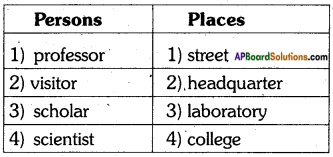
B.

Answer:
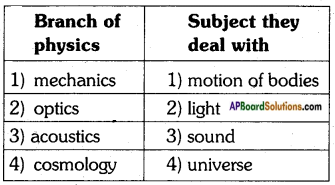
C.


Answer:
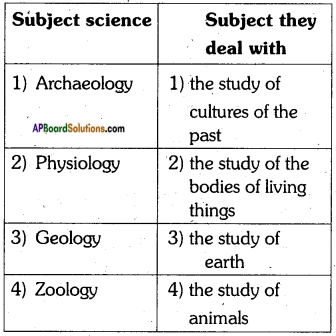
D.

Answer:

13. A) Write the meaningful sentences using the words given below.
i) much:
ii) excellent:
iii) equally:
iv) too:
v) earlier:
vi) through:
vii) some:
viii) hardly :
ix) keen :
x) against:
Answer:
xiii) throughout:
xiv) wholly:
xv) used to:
Answer:
i) I don’t have much money with me.
ii) Her speech was absolutely excellent.
iii) Diet and exercise are equally important.
iv) Can I come too?
v) He learnt to play the violin at an early age.
vi) The thief got in through the window.
vii) Do you want to have some more tea?
viii) There’s hardly anytime left.
ix) John was very keen to help.
x) We are fighting against terrorism.
xi) I’ve already eaten my lunch.
xii) The doctor will see you again next week, meanwhile use these medicines regularly.
xiii) The ceremony lasted two hours anti we had to stand throughout the ceremony.
xiv) The government is not wholly to be blamed for the raising of prices.
xv) I used to live in Guntur when I was a boy.

B) Write the other forms of the following adjectives.
i) busy:
ii) excellent:
iii) young:
iv) confident:
v) brilliant:
vi) high:
vii) great:
viii) neat:
ix) clean:
x) large:
Answer:
| Positive | Comparative | Superlative |
| i) busy | busier | busiest |
| ii) excellent | more excellent | most excellent |
| iii) young | younger | youngest |
| iv) confident | more confident | most confident |
| v) brilliant | . more brilliant | most brilliant |
| vi) high | higher | highest |
| vii) great | greater | greatest |
| viii) neat | neater | neatest |
| ix) clean | cleaner | cleanest |
| x) large | larger | largest |
C) Write the full forms of the following abbreviations.
Abbreviation Full form
1) C.D. ……………..
2) DVD. ……………..
3) A.D. ……………..
4) p.m. ……………..
5) B.A. ……………..
6) C.M ……………..
7) B.C. ……………..
Answer:
1. Compact Disk
2. Digital Video Disk
3. Anno Domini
4. Post meridian
5. Bachelor of Arts
6. Chief Minister
7. Before Christ
D) Write the full forms of the words in the blanks given against each of them.
(One is done for you as an example)
Short form of the word Full form of the word
plane aeroplane
kilo ………….
para ………….
specs ………….
photo ………….
Answer:
kilogram, paragraph, spectacles, photograph
Grammar
14. Edit the following passage correcting the underlined parts.
1. Dolphins are very interesting animals. They, looks (a) like fish’but they are not fish. Fish has (b) cold blood but dolphins have warm blood. Fish can live under water and (c) dolphins cannot. They can stay in (d) water for a long time.
2. An (a) Olympic Games are the great (b) celebrations of sport in the world. They are held once . in four years. The Olympic Games began at (c) Olympia in 776 B.C. They took place from time to time till (d) 393 A.D.
3. Dhyanchand is (a) a very well – known hockey player. He was born at (b) 29 August 1905 in Allahabad. He studied in the (c) local secondary high school. In 1922, he joined a (d) British army as a sepoy.
4. Vikram Sarabhai was responsible to (a) the setting up of the Rocket Launching station or (b) space science and technology centre in (c) Thumba in Kerala. A (d) Rocket and Launching Ranger at Srihari Kota in Andhra Pradesh was set up by Dr. Sarabhai only.
5. Kites are man’s older (a) play things. Before kites man is using (b) dolls as play things. Man first used kites at (c) war. He used them to lift battle supplies. He used kites to carrying (d) other things also.
6. One day, a group of frog (a) decided to make a race and get to the top of an (b) high tower. A lot of people came to see them and give him (c) their support, but the race had just begin (d) and everybody was already saying that the frogs would not get there: It doesn’t made (e) any sense. You’ll never reach the top of the tower!
Answer:
1. a) look
b)have
c) but
d) under
2. a) The
b) greatest
c) in
d) until
3. a) was
b) on
c) a
d) the
4. a) for
b) and
c) at
d) The
5. a) oldest
b) was using
c) in
d) carry
6. a) frogs
b) a
c) them
d) begun
e) make

15. Read the following passage and fill in the blanks with the correct options given against the number of blanks.
1. Have you ever ——– (1) people putting ——– (2) thumb impression on important documents? This is done mainly ——– (3) illiterate people ——– (4) they cannot put their signatures.
1) A) see B) sees C) seen D) seeing
2) A) its B) his C) their D) her
3) A) with B) from C) by D) of
4) A) so B) because C) as D) since
2. The finger prints ——– (1) the police to ——– (2) the thieves and criminals. ——– (3) keep a record of the finger prints of thieves and criminals ——– (4) to them.
1) A) helps B) help C) helped D) helping
2) A) identify B) identifying C) identified D) identifies
3) A) He B) She C) They D) It
4) A) knows B) know C) known D) knowing
3. A cell phone is ——– (1) extremely sophisticated radio. ——– (2) cell phones ——– (3) can talk to anyone ——– (4) the planet from just about anywhere.
1) A) a B) an C) the D) any
2) A) by B) with C) from D) n
3) A) she B) he C) they D) you
4) A) on B) in C) over D) above
4. Abdul is ——– (1) friend. One evening he ——– (2) home from school. He saw a boy ——– (3) in a tank suddenly he jumped ——– (4) the tank and saved the boy.
1) A) I B) my C) me D) mine
2) A) is returning B) returns C) was returning D) returned
3) A) drowns B) drowning C) drowned D) drown
4) A) in B) on C) into D) over
5. ——– (1) zoo is a place ——– (2) many kinds of birds ——– (3) animals are bred and protected. A visit to zoo is not only pleasure giving ——– (4) educative and informative.
I) A) The B) A C) An D) Any
2) A) there B) here C) where D) at
3) A) but B) or C) and D) yet
4) A) as well as B) and C) but also D) in addition to
6. Atmosphere makes ——– (1) earth a planet of life. It ——– (2) us with the air to breathe, protects ——– (3) from dangerous solar rays ——– (4) saves us from extremes of heat and cold.
1. A) a B) an C) the D) that
2. A) supply B) supplies C) supplied D) supplyinq
3. A) we B) us C) our D) ours
4. A) but B) yet C) or D) and
7. Yudhisthira was the name of ——– (1) poor potter who ——– (2) in a certain kingdom. One night, ——– (3) he was returning after drinking ——– (4) than he should, he stumbled and fell over some pots. When he got up, he saw blood was oozing out of his forehead. There was a deep cut due to a broken piece of pot.
1. A) a B) an C) the D) any
2. A) live B) lived C) living D) lives
3. A) which B) where C) who D) when
4. A) much B) more C) many D) lot
Answer:
1. 1 – C; 2 – C; 3 – C; 4 – B
2. 1 – B; 2 – A; 3 – C; 4 – C
3. 1 – B; 2 – B; 3 – D; 4 – A
4. 1 – B; 2 – C; 3 – B; 4 – C
5. 1 – B; 2 – C; 3 – C; 4 – C
6. 1 – C; 2 – B; 3 – B; 4 – D
7. 1 – A; 2 – B; 3 – D; 4 – B

16. A) Write the other forms of the following verbs.
Present tense Past tense Past Participle
1) show ……………….. ………………..
2) announce
3) win
4) delight
5) lose
6) say
7) pass
8) hail
9) catch
10) make
11) bear
12) advise
13) begin
14) become
15) think
Answer:
| Present tense | Past tense | Past Participle |
| 1) show | showed | shown |
| 2) announce | .announced | announced |
| 3) win | won | won |
| 4) delight | delighted | delighted |
| 5) lose | lost | lost |
| 6) say | said | said |
| 7) pass | passed | passed |
| 8) hail | hailed | hailed |
| 9) catch | caught | caught |
| 10) make | made | made |
| 11) bear | bore | borne |
| 12) advise | advised | advised |
| 13) begin | began | begun |
| 14) become | became | become |
| 15) think | thought | thought |
B) Read the following sentences and say what they mean. Choose the right answer from the choices given.
1. Shall I help you in carrying your luggage? ( )
(a) making a request
(b) asking for permission
(c) offering help
2. Could you please lend me your note book? ( )
(a) making a request
(b) asking for permission
(c) making an enquiry
3. Would you mind my leaving the class early? ( )
(a) asking for permission
(b) making a request
(c) giving permission
4. You had better join English tution. ( )
(a) Giving permission
(b) Making a request
(c) Giving a suggestion
5. I am afraid I can’t attend the party. ( )
(a) Expressing fear
(b) Expressing apology
(c) Refusing a request
6. Will you join us for a party? ( )
(a) questioning
(b) advising
(c) inviting
7. Could you please shut the door? ( )
(a) Making a request
(b) asking for permission
(c) Giving an order
8. Shoot the enemy ….. ( )
(a) Giving an order
(b) request
(c) advice
9. Work hard ( )
(a) Advice
(b) request
(c) order
10. Keep quiet, won’t you? ( )
(a) Advice
(b) request
(c) order
Answer:
1) c
2) a
3) a
4) c
5) b
6) c
7) a
8) a
9) a
10) c

C. Fill in the blanks with ‘a’, ‘an’ or ‘the’.
1. 1987, M.S. Swaminathan was awarded ______ Ramon Magsaysay Award.
2. We dined yesterday at ________ Maurya Sherton hotel.
3. Tejaswini lent me _________ interesting book.
4. My father is ____________ school teacher.
5. M.S.Swaminathan worked at _______ Indian Agricultural Research Institute.
6. Rekha bought _______ long notebook yesterday.
7. Sravani is eating ___________ mango now.
8. Ganesh always carries _______ umbrella with him.
9. Rambabu is _______ English teacher in a high school.
10. Manjula and Sruthi play______ guitar well.
11. 1)Raju is __________ honourable person.
2) That would make _________ good present.
3) Can you give me _________ books on the table?
12. 1)Suresh is _______ first ranker in the class.
2) The teacher gave me _______ interesting book.
3) Bhargavi is eating _______ biscuit now.
13. 1) In 1987, M.S. Swaminathan was awarded _______ Ramon Magsaysay Award.
2) We stayed yesterday at ________ Taj Mahal hotel.
3) Anusha lent me ________ interesting book.
Answer:
1) the
2) the
3) an
4) a
5) the
6) a
7) a
8) an
9) an
10) the
11) 1) an 2) a 3) the
12) 1) the 2) an 3) a
13) 1) the 2) the 3) an
D. Now fill in the blanks with ‘in’, ‘on’ and ‘at’.
1. Sarathchandra and Keerthana are brother and sister. Sarathchandra was born —(1)— 25th April —(2)— 2000. Keerthana was born —(3)— December 2, 2001. They are with their parents. They Live —(4)— Kondamudusupalem, a small village —(5)— Prakasam District. They play games —(6)— school. It is usually very hot —(7)— May —(8)— their village. So they spend their summer —(9)— Hyderabad —(10)— their uncle’s house.
Mr. Srisailam is their uncle. He resides —(11)— High Court Colony —(12)— Hyderabad with his wife, Jagadeeswan and his daughter, Vishnu Priya.
2. Sridevi was a famous Indian actress. She was born ——– 13 August 1963 ——– Sivakasi. Her parents were Ayyappan and Rajeswari. She acted ——– 285 films.
3. Raman was born ——– November 7, 1888 and did his M.A. Course ——– Presidency College ——– Madras.
Answer:
1. 1) on
2) in
3) on
4) at
5) in
6) at
7) in
8) at
9) in
10) at
11) at
12) in
2. on, at, in
3. on, at, in

E. Fill in the blanks with too, throughout; however ; meanwhile ; against ; later.
1) The house was painted white ——–.
2) They are fighting ——– terrorism.
3) Bob spent an hour with his computer, Ann ——– took care of the children of-her own.
4) He wanted to take no risks ——– small.
5) See you ——–.
6) When I’ve finished painting the hall, I’m going to do the kitchen ——–.
Answer:
1) throughout
2) against
3) meanwhile
4) however
5) later
6) too
F.
1) Ravi wants to buy a car but he doesn’t have enough to buy a car. How would Ravi express his wish using wish?
2) Sita was angry and spoke rudely to Gita. Later she thought It was wrong. She was not happy about the way she spoke to her friend. How would she express her unhappiness using ‘wish’?
3) Your father is smoking heavily these days. You are not happy with it and you want to change him. How would you express the same idea using ‘wish’?
4) You joined a job in a company. You are not happy with the job. How would you express your
unhappiness using ‘wish’?
5) Sarala is somewhat beautiful. She wants to be even more beautiful. How would she express the idea using ‘wish’?
Answer:
1) I wish I had more money.
2) I wish I had not said that.
3) I wish father would stop smoking.
4) I wish I had not joined the job.
5) I wish I were even more beautiful.

G. Add question tags to the following statements.
1) I will go home, ___________ ?
2) The story is interesting, ______________ ?
3) I am not a fool, ___________ ?
4) I am clever, ______________ ?
5) 1 can speak English, _____________ ?
6) She has paid the fees, _____________ ?
7) We have seen the film, ___________ ?
8) You are wise, ___________ ?
9) I shall go, ____________ ?
10) You must do this, _____________ ?
Answer:
1)won’t I?
2) Isn’t it?
3) am I?
4} aren’t I?
5) can’t I?
6} hasn’t she?
7) haven’t we?
8) aren’t you?
9) shan’t I?
10) mustn’t you?
![]()
![]()
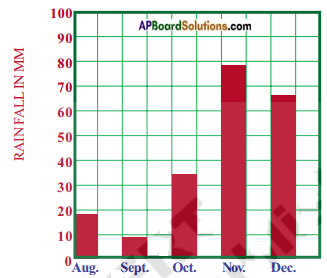

![]()
![]()




















